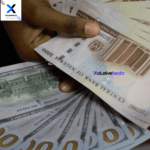What you need to know about Nigeria’s recent increase in electricity tariffs

The decision by NERC to approve a 250 per cent electricity tariff hike is expected to have a major impact on electricity consumers in Nigeria. It will greatly increase the cost of electricity for ‘Band A’ customers, who are already struggling to pay their electricity bills. This significant shift from electricity subsidy shows the severity of the challenges faced by the Nigeria Electricity Supply Industry and highlights the urgent need for improvement in the country’s power infrastructure.
However, this statement has caused controversy as many customers have reported experiencing power outages for more than 20 hours. This calls into question the accuracy of NERC’s data and raises concerns about the reliability of the electricity distribution companies. Furthermore, the tariff hike may disproportionately affect lower-income customers who are already struggling to pay their electricity bills and may not have access to alternative sources of power. This decision by NERC has sparked criticism and calls for better regulation and transparency in the electricity industry.
The hike in electricity prices may be seen as a disadvantage to customers under Band A, as they will have to pay 250 per cent more for their power supply. However, it is important to note that Band A customers only make up 15 per cent of households in Urban areas in Nigeria, and they consume a significant amount of electricity (40 per cent) in the country. Therefore, the subsidy removal may be necessary in order to ensure a fair distribution of electricity and to improve the overall supply for all customers. Unfortunately, this price hike will not necessarily guarantee an improvement in the electricity supply to the affected customers.
ALSO READ: Nigerian exam body, NECO begins SSCE in Saudi Arabia
However, this has led to outrage and protests from consumers, especially those in Band A who are now paying 300 per cent more for electricity. Many are questioning the justification for such a steep increase in electricity tariffs and the lack of improvement in power supply despite the additional costs. The Minister of Power, Adebayo Adelabu, has stated that gas constraints are to blame for the ongoing power shortages, but consumers are demanding more transparency and accountability from the government and electricity providers. This situation highlights the ongoing issues and challenges within the Nigerian electricity sector and the need for effective solutions to ensure reliable and affordable electricity for all citizens.








